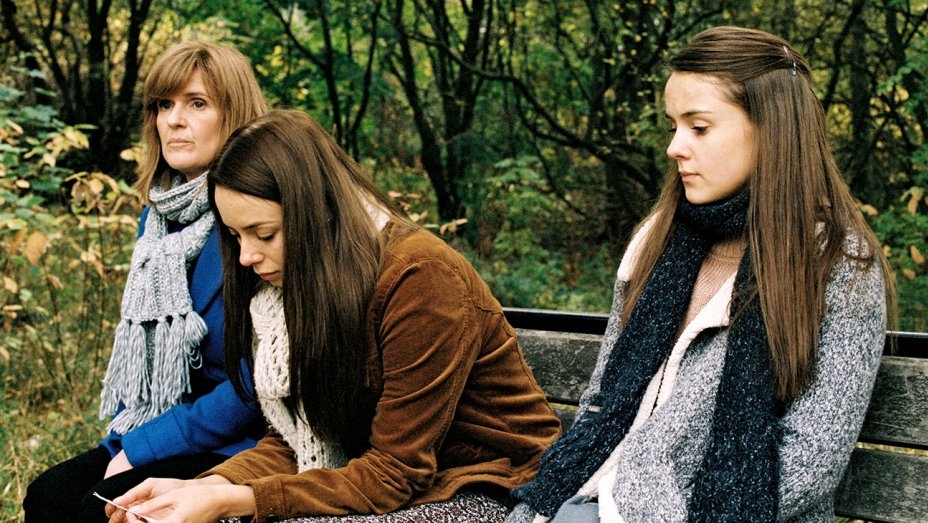
Jehova’s Witnesses – One Christian denomination that’s been generating curiosity in me for long. Even in India where Christianity is a minority and Witnesses even fewer in number, it has always intrigued me on how they indulged in door-to-door preaching and pamphlet distribution, both of which involved pretty direct religious messaging. Having grown up in a multi-cultural part of the country, I have always tried to understand their points of view – which were mostly spun around ‘The Truth’. Also pretty similar to another dogmatic group called Pentecostals, what always alarmed me was their unbreakable conviction. For Jehovah’s Witnesses, faith wasn’t something necessarily personal. Their modus operandi is clearly intrusive to many, although I don’t remember hearing about any instance of intolerance in my growing up years. Director Daniel Kokotajlo’s Apostasy – once again – sent me on a short research trail around this tiny religious fragment.
It is said that the best of stories are the ones you were originally a part of. An ex-Witness himself, Kokotajlo seems aware and cleverly chooses the subject for his debut. Apostasy traverses the life of an extremely devout Jehova’s Witnesses family headed by a single mother, Ivanna. Her daughters – the timid Alex and the slightly rebellious Luisa – form her world and their conversations reveal nothing about the man of the house (if there existed one). Their isolated world turns around when Luisa gets pregnant – that too from a non-believer boy. With faith overpowering relationships of all kinds, the girl soon faces disfellowshipping from the Witnesses’ clan and the focus suddenly shifts to the young Alex.
Right from the beginning, Kokotajlo displays clarity in his endeavour to address most archaic practices of Jehovah’s Witnesses. Very early in the film, we see a batch of American youngsters being trained in Urdu so that they could practice evangelization amidst native speakers. The tutors and the students are possibly aware of the risks of being rejected and attacked. There’s another instance where Alex bumps into Luisa and her non-Witness friends. Although soft-spoken and relatively submissive, Alex doesn’t miss a chance to assert her beliefs even in a short meeting like that. We sense how her nurturing was like – instilling fear of becoming impure and the scare around the impending Armageddon.
Jehovah’s Witnesses are famously known to reject medical care. Alex, who suffers from a chronic case of anemia, had to undergo a blood transfusion during her birth. Ivanna considers this as an act of impurity which performed against her will. Later at a moment of causality, Ivanna rejects blood transfusion for Alex deeming the medical practitioner’s recommendation as a mere ‘opinion’. Ivanna, thus, is the film’s most fascinating character. She doesn’t show signs of possessing abilities to make a massive outburst. Orthodoxy quietly resides in her and the most shocking of her deeds are performed with an inconspicuous conviction. A lot of it has to be attributed to Siobhan Finneran’s deeply involving performance.]
ALSO READ: ‘Meera’ and ‘Viridiana’: Through the prism of religion and faith
Apostasy also raises several questions about motherhood. In a small social gathering that Ivanna and Alex attend, the hosts’ children perform the famous Judgement of Solomon – one that tested a mother’s love for her offspring. Minutes after this scene, we are shown what means the most to Ivanna. The tug of war was then between her beloved child and her totalitarian beliefs as a Jehovah’s Witness. With Luisa giving birth to her child, Ivanna sees another ray of hope and even in the shocking way that the film ends, you see absolute clarity that Ivanna has in her rooted doctrines.
The film also briefly explores man-woman relationships within the faith. A young and upcoming Witness – Steven – develops an interest for the willowy Alex. As there doesn’t exist the idea of dating within the community, the young lad approaches the girl and her mother in all authority. In what looks like staged matchmaking, this bonding is also a system to propagate the religion’s outdated identity to the following generations. Alex and Steven’s friendship is not ignited by love or lust. It is about infatuation driven by the need for a partner. For Ivanna, the arrangement is further reassuring as her elder daughter found ex-communication and she doesn’t want the story to repeat with the obedient Alex.
In perhaps the film’s most striking and unforgettable scene, Ivanna rushes to the ladies’ room from a prayer service that she was a key part of. The orator’s voice blares out of a loudspeaker in the loo, forming a comfortable metaphor on the vicious nature of the religion. This is also when we reminisce a line by Luisa that questioned her mother on how the Witnesses change their statements and their respective meanings when things go wrong.
A film that notably comes without a soundtrack, Apostasy has to be one of the most intuitive and quietly shocking pieces of cinema on religion to have come out on the festival scene for a long time. Daniel Kokotajlo deserves applause for the wonderful debut that Apostasy is.
Rating: ★★★ 1/2
Apostasy is now streaming on Amazon Prime Video.
The film was screened at the 19th MAMI Mumbai Film Festival held from 12 to 18 October 2017.

